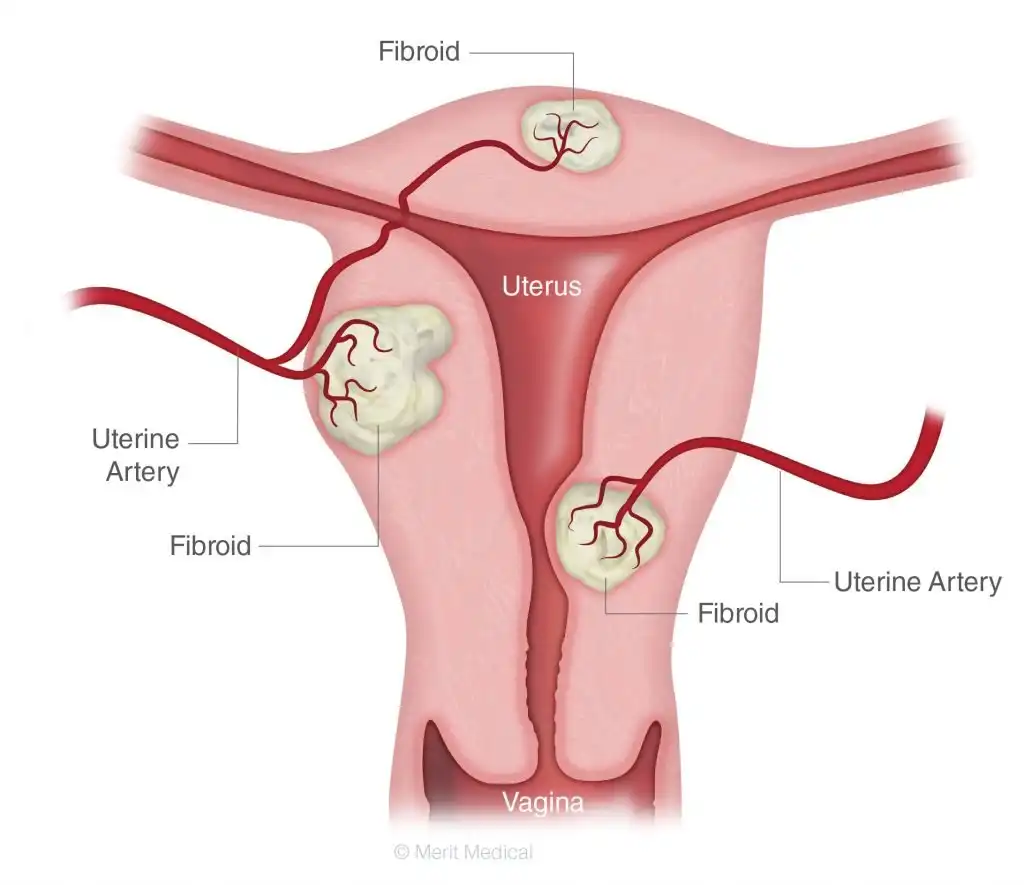Stop suffering from fibroids and get back to life
The team at Fresno Fibroid Center are experts at performing Uterine Fibroid Embolization with over 15 years combined experience and specializing in the treatment of uterine fibroids. Read more to learn about whether your symptoms may be caused by fibroid tumors, and who is more at risk for developing fibroids. Schedule a consultation at our Fresno area offices. Talk with our fibroid specialists about treating your symptoms like heavy bleeding, pelvic pain, and urinary incontinence/bladder irritation.
Call Fresno Fibroid Center at (559) 436-4737.
What Causes Fibroids for Women in Fresno?
Fibroid experts don’t know the cause of uterine fibroids, but research and clinical experience point to some of the following factors:
- Changes in Genetics – Many fibroids will contain changes in genes that differ from those in normal uterine muscle cells.
- Hormone Production – The two hormones that stimulate development of the uterine lining during each menstrual cycle in preparation for pregnancy, estrogen and progesterone, appear to promote the growth of fibroids. Fibroids contain more estrogen and progesterone receptors than normal uterine muscle cells do. Fibroids also tend to shrink post menopause becuase of a decrease in hormone production.
- Other growth factors – Substances that help the body maintain tissues may affect fibroid growth, such as insulin-like growth factor.
Specialists that study and treat fibroids believe that uterine fibroids develop from a stem cell in the smooth muscular tissue of the uterus. When a single cell pides repeatedly it eventually creates a firm, rubbery mass that is distinct from nearby tissue.
Growth patterns of uterine fibroids vary. They can grow slowly or rapidly, or remain the same size. Some fibroids will go through growth spurts, and some could shrink on their own. During pregnancy, many fibroids that have been present will shrink or disappear afterwards, as the uterus goes back to a normal size.

What Are Fibroids?
Uterine fibroids are benign (non-cancerous) tumors that grow on or within the muscle tissue of the uterus.
Common Fibroid Symptoms
Some of the most common symptoms of uterine fibroids include heavy, excessive menstrual bleeding, pelvic pain and pressure, and urinary incontinence and frequency. If you are experiencing signs and symptoms of uterine fibroid tumors, you may find it difficult to perform your daily activities and maintain your way of life.
Types of Fibroids
There are different types of fibroids and the size can range from very small (walnut size) to as large as a cantaloupe or even larger. It is common for a woman to have multiple fibroid tumors and it may be difficult to understand which fibroid is causing your symptoms.
Who is at Risk for Fibroids?
Approximately 20-40% of women 35 years and older have fibroid tumors. Fibroids are more common among women of African-American descent. Some statistics indicate that up to 80% of African-American women will develop uterine fibroids. Find out if you are at risk for uterine fibroids.
If you have fibroids you have options. While some women do not experience any of the symptoms of fibroids, the location and size of fibroid tumors can cause symptoms that can affect a woman’s quality of life. Take a look at the treatment options available.
Fibroids are hormonally sensitive so symptoms are likely to be cyclical, like menstruation. As estrogen levels tend to increase prior to the onset of menopause, this may cause the size of many uterine fibroids to increase along with the symptoms. During menopause the levels of estrogen decrease dramatically, causing fibroids to shrink. However, women taking hormone replacement therapy (HRT) during menopause may not experience any symptom relief because the estrogen contained in this regime may cause fibroid tumors to enlarge and symptoms to return.
© 2003-2015 Merit Medical Systems, Inc. All Rights Reserved.
